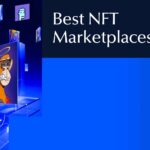Bank of America has identified tokenization—the creation of virtual investment vehicles on the blockchain tied to real-world assets—as a significant evolution in investment products, dubbing it “mutual fund 3.0” in a recent report. This development parallels the emergence of mutual funds in 1924 and the rise of exchange-traded funds (ETFs) in the 2000s, suggesting that blockchain technology could catalyze a new wave of financial instruments.
The report highlights the rapid advancement of real-world asset (RWA) tokenization, with firms such as Securitize collaborating with major asset managers like BlackRock, Apollo, KKR, and Hamilton Lane to issue tokenized funds. WisdomTree has also entered the space, developing its own tokenization engine that allows it to manage over a dozen tokenized funds effectively.
As per data from RWA.xyz, the on-chain value of real-world assets has surpassed $28 billion, primarily concentrated in private credit and U.S. Treasury securities. Nevertheless, regulatory uncertainty remains a significant challenge for the sector. While legislative measures such as the GENIUS and Clarity Acts address stablecoin regulations, they leave many ambiguities surrounding tokenized funds unaddressed. Bank of America asserts, however, that the potential benefits of tokenization will drive its adoption despite the current restricted access for U.S. investors.
The case for tokenized equities, according to analysts, appears weaker since U.S. brokers already provide commission-free trading for stocks and ETFs. This trend was notably accelerated by Robinhood’s disruptive market entry in 2019, prompting firms to focus on monetizing client cash and order flow, which diminishes the appeal of tokenized versions of these assets. On the other hand, tokenized money market funds, enabled by smart contracts, could challenge existing cash management models and open up new revenue opportunities.
Currently, distribution remains a key obstacle for tokenized funds, with platforms for such offerings remaining scarce. However, online brokers like Robinhood, Public, and eToro are well-positioned to leverage their existing crypto integrations and cater to younger clients who prefer self-custody. Additionally, exchanges like Coinbase might emerge as partners as they shift beyond their core cryptocurrency offerings.
Bank of America anticipates that tokenized money market funds will spearhead the adoption of this new investment approach, thanks to their appealing yields compared to stablecoins, which are restricted from paying interest under the Genius Act. The growth of private credit and high-yield products is likely to follow as tokenization becomes more mainstream.







